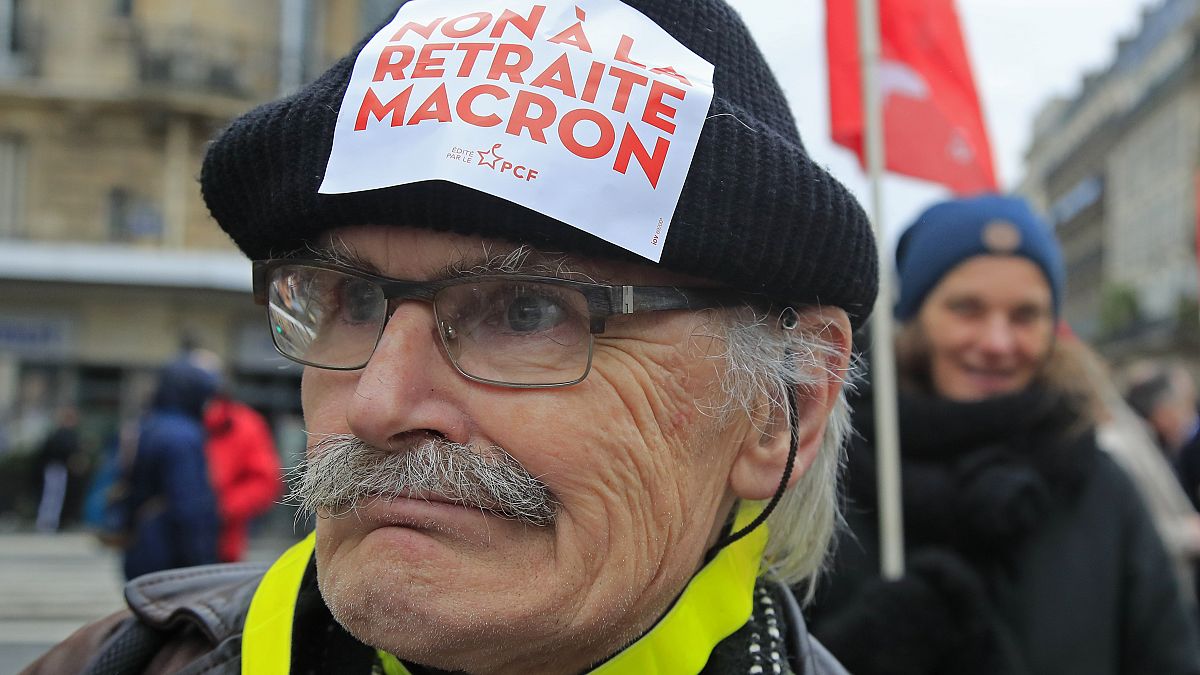The strikes over change to the French pension system are now the longest ever.
On Boxing Day, France’s CGT trade union revealed that it had received one million euros from 23,000 individual donors in support of those striking against changes to France’s pension system. By 30 December that figure had risen to over €1.6m.
The cash has flooded in despite weeks of transport chaos in cities such as Paris, as the strikes over President Emmanuel Macron’s reforms to the country’s welfare system enter their 26th day and with half of all TGC services across France still cancelled.
On Monday, Parisians returning to work after the Christmas break faced more transport chaos, with a promise from unions that the disruption would continue over the holiday period and into 2020 unless plans to raise the retirement age to 64 were shelved.
Many of the strikers, who have now been off work without pay for almost a month, will need the money. At many of the protests, donation boxes have been wielded alongside placards.
CGT last week also issued a warning against “certain collections known as “strike funds” organized without agreement from the professional sectors engaged in the battle.”
In Paris, Euronews’ Anelise Borger explained that some workers had saved in advance for the strike action, while others “are basically counting on solidarity. You see donation boxes at pretty much every single march.”
But because of government regulations that require every salaried worker in France to contribute 0.016% of their paychecks to unions (despite the fact that only 10% of workers are represented by them), French unions are famously flush with cash.
Read more: Macron poised to address pension strike in New Year address
Olivier Lefebvre, a maintenance worker at a Peugeot automobile plant and top official of the Workers' Force union at PSA Peugeot, told the Associated Press that even those who are not members of the union appreciate its presence.
"I think ... people feel protected by the union organization," said Lefebvre. "It's stable. It's always there, just in case."
Whether the patience of the French public will hold out remain to be seen, however. Protests are expected on January 3 followed by a country-wide day of action on January 9, which organisers believe will bring thousands to the streets.
Meanwhile, talks between the unions and the government - shelved before Christmas after they failed to reach a compromise - are expected to restart on January 7.
Macron, who has been relatively silent on the strikes so far but is expected to address them in his New Year’s message on Tuesday, is hoping to get the law approved by the Council of Ministers and then by parliament before the end of January.
As well as raising the retirement age from 62 to 64, the law will end lucrative pension deals that allow some transport workers to retire as early as 50.
The last time the French government attempted to overhaul the country’s pension system - in 1995 - it broke down after a 22 day strike by workers.
Trade union leaders are confident that despite weeks of disruption, they can keep the larger French public onside long enough to force Macron to back down.
"The mobilization is still there. That's a real message for the government," CGT leader Philippe Martinez said after a Paris march that drew thousands on Saturday.
How do French unions make their money?
First legalized in 1884, two decades after Napoleon III accorded workers the right to strike, France's unions have built up muscle and money over the years.
Large unions have a considerable patrimony, including chateaux, some of them requisitioned at the end of World War II, according to Dominique Andolfatto, an expert on unions at the University of Bourgogne Franche-Comte, told AP. The chateaux are used in some cases as vacation or training centers.
But in recent years unions have been losing members — about a 30% decline since 1970, Andolfatto said. France now has one of the lowest rates of unionized workers in the 36-nation OECD, he said.
Unions in some cases also benefit from direct subsidies from companies or cities and towns, Andolfatto said. Companies and the state also pay for employees "detached" from their job, some full time, to concentrate on union work, including arranging strike actions, he said, estimating that at least 20,000 civil servants are affected.
Officially, France "considers ... that unionism is positive for the economy ... It contributes to democracy, to development," Andolfatto said. The unstated reason is that officials and employers consider they “are buying social peace.”
